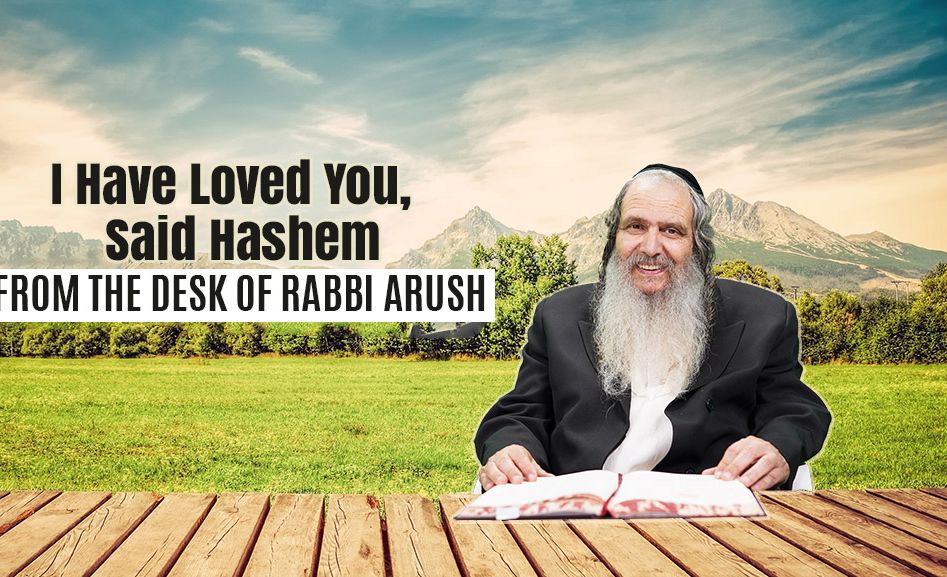
Wings of Eagles – Personal Prayer
A desert nomad received a pair of wings; he didn't like them though, because they were cumbersome. Instead of using them to fly, he carried them on his back...

A nomad spent his life wandering in the Arabian desert, meandering from oasis to oasis. Life wasn’t easy, for the desert was full of robbers and other outlaws who made their living pouncing on poorly-protected people at desolate places. Oftentimes, they’d not only take a person’s money, but his life as well. If that wasn’t bad enough, the desert was full of snakes, scorpions, wolves, mountain lions and other predators. It was dangerous, to say the least. On more than one occasion, the nomad barely escaped with his life.
Following one such close call, when the nomad nearly fell prey to a band of hungry jackals, he knelt in prayer, calling out in his native Bedouin dialect, “Allah il akbar, Allah il rahman! All-powerful G-d, merciful G-d! Please have pity on your humble servant. Nothing escapes Your eyes. You see how often danger calls on the opening my tent. Please have pity on me! Dehil, Allah! Please, O G-d – do something to help me! Have pity on Your servant.”
Hashem heard the nomad’s prayers. Suddenly, a giant eagle flew overhead. The eagle had a sixteen-foot  wing span; each giant wing was eight feet in length. Suddenly, the eagle’s wings fell to the ground not far from the nomad, and the eagle vanished in thin air. The nomad ran over to the wings and inspected them – they were perfect, with long, elegant and unblemished black and brown feathers. G-d had sent him a magnificent gift. He was so happy.
wing span; each giant wing was eight feet in length. Suddenly, the eagle’s wings fell to the ground not far from the nomad, and the eagle vanished in thin air. The nomad ran over to the wings and inspected them – they were perfect, with long, elegant and unblemished black and brown feathers. G-d had sent him a magnificent gift. He was so happy.
Shortly thereafter, a wild animal spotted the nomad and began to chase him. The nomad ran for his life. But he had a problem – he was carrying a cumbersome pair of eight-feet long wings on his back. They slowed him down considerably. Disgusted, he threw them down in the sand. He shook a fist in the directions of the heavens and cried out, “What do I need wings for? They just weigh me down.”
An Arab-language voice from the heavens responded, “Nakara a’jhamil, ya majnoon! You foolish ingrate! You’re not supposed to carry those wings on your back. Look at them – they have sleeves that fit your arms perfectly. If you’d have only put them on, you could have flown high in the sky and none of your enemies could have reached you!”
* * *
Are we all like the silly nomad? Do we carry the wings that Hashem gives us on our backs rather than soaring to great heights with them?
And I shall carry you on the wings of eagles, and I shall bring you to me (Exodus 19:4). My beloved teacher Rav Shalom Arush shlit’a always says that the Torah is not just a story book or a history book, but a personal message to each one of for posterity.
With the above in mind, Hashem gives each of us the wings of eagles; we’re to use them to bring ourselves closer to Him. These wings of eagles are the power of prayer. With prayer, we can rise to limitless heights. We can ascend far beyond the reach of our enemies. We can attain anything we want.
So why don’t people pray?
The main obstacles to prayer are impatience and lack of emuna. One who lacks patience gives up whenever he or she is denied instant gratification. And, one who doesn’t believe won’t pray at all, for he or she thinks that it’s no better than talking to a wall.
With lack of patience and lack of emuna, prayer is a meaningless drag. If you don’t fly, the “wings” just weigh you down. That’s why for so many people, Shachrit, Mincha, Maariv – and especially personal prayer – are simply dry obligations that they need to get of their way as fast as possible. Nothing could be more regrettable.
Once we strengthen our emuna and sharpen our powers of prayer, we literally fly. We don’t need the wings of eagles, for Hashem gives us our own wings. Let’s make good use of them!












5/06/2013
I love this article I love Rabbi Brody's articles, and especially his parables. They are simple, but go straight to the heart. This article gave me the desire to talk to Hashem. Thank you!
5/06/2013
I love Rabbi Brody's articles, and especially his parables. They are simple, but go straight to the heart. This article gave me the desire to talk to Hashem. Thank you!